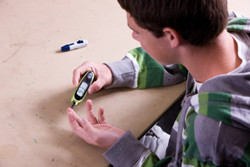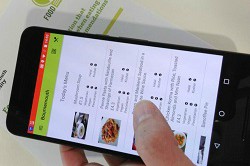Remotely managing youth diabetes
Type 1 diabetes is a serious condition involving insulin deficiency, usually first becoming apparent between the ages of 10 and 14 years. Self-management is key to controlling the disease, yet this is especially difficult for adolescents. Backed by EU funding, the 'Long-term e-health evolution for improving diabetic social and behavioural change management' (LTE-HEALTH) project aimed to simplify diabetes self-management. The concept involved developing an e-health platform, involving humanoid robots, to which young diabetics connect over a distance. The robot provides an interface between patients' sensors and doctors, supporting long-term behavioural change. The two-year project concluded in early 2014. The pilot study was designed to measure patients' and clinicians' acceptance of the system. Results from a group of 37 diabetic children aged 6–16 years showed an overall acceptance of around 87 %. Patients aged 6–9 years showed the highest acceptance, at nearly 95 %, while patients aged 10–12 and 13–16 years showed acceptance rates of around 84–85 %. Male and female patients showed almost no difference. LTE-HEALTH activities represent an important step in evaluating the e-health platform. The trial study demonstrated a high level of patient acceptance of the proposed system.







